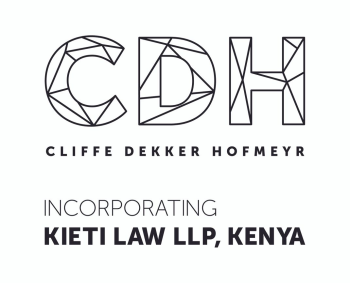On November 4 2016 the Tax Court (Cape Town) handed down judgment in ABC Holdings (Pty) Ltd v The Commissioner for the South African Revenue Service (Case ITI13772).
The court considered whether the taxpayer, ABC Holdings (Pty) Ltd, was entitled to claim a deductible allowance of enhancement income of R9,354,458 received in terms of a contract for future expenditure under Section 24C of the Income Tax Act (58/1962) for its 2011 assessment year. The other issue that arose, and the focus of this update, was whether the South African Revenue Service (SARS) was correct to levy an understatement penalty in the circumstances.
The taxpayer, which administers and manages retirement villages and their frail care centres, claimed the Section 24 allowance in its 2011 assessment year. SARS subsequently conducted an audit in January 2014 and notified the taxpayer that it had incorrectly claimed the Section 24C allowance. As a result, the taxpayer was held liable for the income tax payable on the above amount and an understatement penalty of R261,924.80.
After the court found that the taxpayer was not entitled to claim a deduction under Section 24C, it considered whether SARS was correct in levying an understatement penalty under Sections 222 and 223 of the Tax Administration Act (28/2011). The taxpayer submitted that the understatement had arisen as a result of a bona fide inadvertent error, as contemplated in Section 222(1) of the act, and that it therefore did not have to pay an understatement penalty.
In considering whether the understatement penalty had arisen due to a bona fide inadvertent error, the court noted that:
- LL Accountants had assisted the taxpayer; and
- Professor T had provided a tax opinion concluding that the Section 24C allowance could be claimed, which had been attached to the notice of objection.
Under Section 221 of the Tax Administration Act, an 'understatement' means any prejudice to SARS in respect of a tax period as a result of:
- a default in rendering a return;
- an omission in a return;
- an incorrect statement in a return; or
- failure to pay the correct amount of tax where no return is required.
Under Section 222(1) of the Tax Administration Act, an understatement penalty is not payable if it arises due to a bona fide inadvertent error. As the act does not define the meaning of the phrase 'bona fide inadvertent error', the court considered the dictionary meaning of these words and concluded that a "bona fide inadvertent error has to be an innocent misstatement by a taxpayer on his or her return, resulting in an understatement, while acting in good faith and without the intention to deceive".
The court found that, on the facts of the matter, there was no doubt that the taxpayer had acted in good faith and with no intention to deceive. Since Professor T had gone as far as interpreting case law regarding the interpretation of contracts, some of which had been relied on by the taxpayer's counsel in his argument, it could have given the impression that his interpretation of Section 24C would more than likely be upheld in court. It could therefore be argued that Professor T had strayed into offering a legal opinion, which would make the taxpayer's argument less plausible. However, the court held that there was merit in excusing the taxpayer for its reliance on Professor T's opinion due to its lack of knowledge on tax and legal issues. It therefore ordered that the understatement penalty be remitted.
For further information on this topic please contact Louis Botha, Heinrich Louw or Mark Morgan at Cliffe Dekker Hofmeyr by telephone (+27 115 621 000) or email ([email protected], [email protected] or [email protected]). The Cliffe Dekker Hofmeyr website can be accessed at www.cliffedekkerhofmeyr.com.
This article was first published by the International Law Office, a premium online legal update service for major companies and law firms worldwide. Register for a free subscription.





